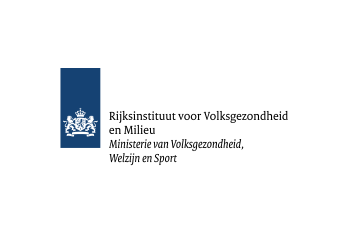HIV doesn’t stop you leading a long and healthy life. It is, and always will be, important to go to the hospital for check-ups, even though you don't feel sick. So you can start your medication in time and the HIV doctor can monitor whether the medication is working, and not giving side effects.
During a clinical appointment, you discuss your health with a doctor and/or nurse. Sometimes you go there with a complaint or a question, and sometimes you ‘just’ go for a checkup. This can take some getting used to at first, but it becomes routine after a while.
HIV is a virus that weakens immune systems in people. HIV is short for human immunodeficiency virus. Immunodeficiency means an impairment of the immune system.
To be clear, you are not obliged to tell anyone that you have HIV. That includes people at your school, the crèche or your work; or your general practitioner, sex partner, specialist or medical officer. Of course, it may be good to tell your doctor because any symptoms you end up getting might be HIV-related.
Everyone reacts in their own way to their HIV-diagnosis. Some people a hit hard by it; for others, it takes a while to sink in. Who you hear it from can make a difference; someone you know and trust, such as your general practitioner, or someone you don’t know.
The advice is to start medication immediately after the HIV diagnosis. Starting medication soon after the diagnosis has long-term health benefits. The virus then has less chance of spreading and hiding away in various places in the body. This reduces the risk of complications and physical symptoms.
HIV is not yet curable, there is no cure for HIV. Research is currently being done into it, but this research is still in the early stages. If a way is found to cure people of HIV, it will still be a long time before the cure is available. Optimistic researchers think there could be a cure within 10 to 15 years.
Once you've received your HIV diagnosis, the doctor or nurse will talk to you about informing your partner or partners. This is because you might have contracted HIV from someone who is unaware of their HIV status.
Have you had sex that put you at risk for HIV? Or did you use someone else's equipment to administer drugs? Do you have symptoms that could indicate HIV? Go for an HIV test.
Would you like to know what your chances are of contracting HIV? And what about your basic knowledge of HIV and the risk of transmission?
In the first week of January 2021, the Dutch corona-vaccination program started. When can people with HIV get the vaccine? Which vaccines are going to be used in the Netherlands? And has there been research done on people with HIV? And are there any interactions with HIV medication? We will answer your questions here.
Recently, the Dutch Association of People with HIV (Hiv Vereniging) has received a great many questions about HIV and the coronavirus. Our Medical Officer is keeping up with developments and issuing updates when there is news. Below we answer some of the most frequently asked questions.
The Hiv Vereniging is actively involved in research on various topics regarding HIV. We give feedback, share calls for participants, or participate as an advisor. In this article we share a call for the University Medical Center Utrecht. They are currently studying the meaning of an HIV cure for people with HIV.
Do you want to participate in our study on HIV and COVID-19? We are looking for people with HIV willing to fill in eight short questionnaires within a three-month period. We want to learn more on COVID-19 in people with HIV, and if HIV medication has an effect on COVID-19 infections.
How do others react to people with HIV? Do ignorance and outdated ideas about HIV still play a role? And in what situations do people with HIV experience prejudice and discrimination? Do you have HIV and would you be willing to tell us about your experiences with reactions from others?








